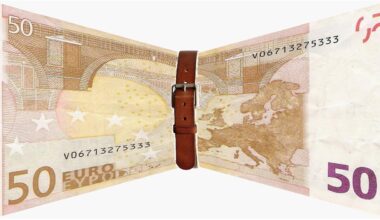The Art of Budgeting: Keeping Lifestyle Happiness and Financial Health in Sync
Creating a balanced budget is the first step toward a life that embraces both financial health and personal happiness. A well-structured budget allows for stability and predictability while ensuring you can indulge in your lifestyle preferences. Begin this journey by listing all your income sources and expenditures. Identify the fixed costs, such as rent or mortgage, utilities, and groceries, which must be covered. Then, turn your attention to variable expenses, which include entertainment and dining out. By pinpointing both aspects of your finances, you can establish a clear financial picture. This clarity leads to better decision-making when exploring lifestyle choices without feeling guilty. Prioritize your spending by distinguishing needs from wants. As a rule of thumb, allocate a reasonable percentage of your income to savings, investments, and fun activities that enhance your lifestyle, allowing for leisure while still securing your financial future. Aim to save at least 20% of your income whenever possible. This practice fosters a good habit while providing peace of mind.
Once you understand your financial landscape, consider setting short-term and long-term goals that align with your lifestyle aspirations. Setting clear intentions helps you remain focused, and it contributes to a fulfilling life without overspending. Create a goals chart to visually remind you of your targets, whether they are saving for a vacation, purchasing a new car, or building an emergency fund. Regularly assess your progress by reviewing this chart, adjusting your strategies as necessary. Don’t forget to celebrate small victories; these positive reinforcement moments keep you motivated along your journey. And if lifestyle purchases go on sale, seize these opportunities wisely! Ensure your purchases don’t derail your overall budgeting plan. Reassess your goals periodically to keep your techniques relevant. Remember, financial flexibility can foster happiness—balance achieving personal desires with responsible financial behavior. By maintaining a budget that reflects your priorities, you allow yourself to enjoy both lifestyle luxuries and financial security simultaneously. Ultimately, good budgeting is about aligning your financial decisions with your personal values, creating harmony.
Finding Enjoyment in Frugal Living
Finding enjoyment while adhering to a budget is not only achievable but can be deeply fulfilling and refreshing. Embracing frugal living can greatly enhance both your lifestyle and financial health. Start by exploring low-cost or free activities in your community—most cities offer numerous events, festivals, or outdoor spaces that are begging to be explored without an entry fee. Engage in local farmers markets or craft fairs to experience local culture without a hefty price tag. Furthermore, consider initiating a potluck dinner with friends instead of dining out; this way, you can share your culinary talents while cultivating stronger relationships. Discovering the joy of cooking at home not only saves money but can also lead to creativity in the kitchen. Plus, you can control ingredients, contributing to better dietary choices. Additionally, dive into hobbies that require minimal investment, such as reading, exercising, or gardening, offering fulfillment without financial strain. Be adventurous—learn to tackle DIY projects that elevate your living space, infusing your environment with personality.
Establishing a budget also means being vigilant about managing discretionary spending effectively. It’s important to identify areas where overspending may occur. Tackle frequent impulse purchases by implementing a wait period before making such decisions. This approach grants the mind time to evaluate whether the item is genuinely essential, or simply a fleeting want. During this window, you might discover various alternatives that provide similar satisfaction without the cost. Another useful strategy is to create spending limits for categories like entertainment or clothing. By allocating a specific amount for fun activities, you ensure that they fit seamlessly into your overall budget without veering into debt. Even more so, learn to appreciate the value of experiences over material purchases. Adventures, travel, or attending concerts often yield unforgettable memories that contribute to happiness far more than material items can. Therefore, adjust your spending habits to prioritize experiences, ensuring that financial health remains a priority without compromising lifestyle satisfaction. Celebrate moments of self-discipline while allowing for planned indulgences, rewarding your budgeting efforts.
The Role of Technology in Budgeting
In today’s tech-savvy world, there are numerous applications and online tools designed specifically to assist with budgeting. Leveraging these resources can enhance your budgeting experience, allowing for more efficient tracking and management of financial activities. Applications like Mint, YNAB (You Need A Budget), or EveryDollar provide user-friendly interfaces that allow for real-time adjustments and insights into your spending habits. They facilitate an easier understanding of your finances by categorizing expenditure and generating visual reports. You can set up notifications to monitor when you’re approaching spending limits, creating accountability for your financial goals. Additionally, consider utilizing expense trackers to identify patterns, enabling you to adjust spending accordingly. Monitoring your progress provides motivation and satisfaction as you truly begin to grasp your financial flow. Tech tools help you stay organized, simplifying what could be a complex process into actionable insights. Take advantage of these resources to develop discipline, providing peace of mind in achieving a harmonious balance between lifestyle enjoyment and financial well-being, making budgeting less of a chore and more of an empowering undertaking.
As you improve budgeting capabilities, don’t hesitate to seek advice from financial experts or attend workshops tailored to enhancing financial literacy. Education is key; learning from seasoned professionals opens doors to valuable strategies that might have otherwise gone overlooked. Furthermore, reading blogs or diving into books on personal finance can elevate your understanding, ensuring you are well-equipped to manage your money efficiently. Joining online communities, like forums or social media groups, may also provide access to shared experiences and support from peers navigating similar financial journeys. This kind of networking can lead to new ideas and innovative perspectives regarding budgeting techniques. Engage with these communities immensely; they can offer encouragement and helpful resources you may not have known existed. Staying motivated and learning from others ensures continual improvement in both financial habits and lifestyle choices. Through education and community support, you build a confident approach toward achieving financial health, blending your lifestyle preferences alongside your budget seamlessly. With shared insights, you can refine your budgeting plan to better suit your needs over time.
Final Thoughts on Balancing Lifestyle and Budget
Ultimately, successfully balancing your lifestyle with responsible budgeting is an ongoing journey. Resilience and flexibility are essential qualities that enable adaptation to ever-evolving circumstances. Life is full of surprises, and it’s important to remain adaptable when unexpected costs arise or lifestyle opportunities present themselves. Create a budget that isn’t just a strict guideline, but rather a dynamic framework that evolves with you as you grow. Revisit your budget regularly—monthly, if possible—and adjust it according to changing priorities or income fluctuations. Prioritizing open communication about finances with family members or roommates can greatly help everyone involved understand collective budgets, illustrating accountability while inviting shared goals. Acknowledging the ongoing nature of budgeting fosters a positive mindset while keeping the lines of communication open. In turn, you not only nurture financial health but also enhance the quality of personal relationships and lifestyle enjoyment. The art of budgeting should not be viewed as a limitation but rather a means of allowing both finances and leisure to coexist harmoniously. Appreciate this journey toward financial wellness and enjoy every moment along the way.
In conclusion, practicing mindful budgeting really allows you to relish the journey towards both financial health and lifestyle happiness. Learning techniques to optimize spending while strategically saving contributes to peace of mind, leaving space for enjoyment. A sound budget provides the framework to live comfortably within your means while cultivating happiness. With discipline and intentionality, you can continuously achieve enjoyment without sacrificing your financial goals. Explore innovative ways to integrate your budgeting techniques with lifestyle maintenance—keep seeking deals, revel in creativity, and always celebrate small triumphs. Consider every financial choice as an opportunity for empowerment, deepening your connection with money management. Balancing lifestyle desires with fiscal responsibility ultimately brings fulfillment and abundance. Gratitude for the process can inspire you to handle future endeavors with confidence. Embrace the journey; remain optimistic about your financial path, ensuring that happiness coexists alongside financial wellness. Your budget should reflect not just your necessities but also your desires, creating a fulfilling and vibrant existence. Thus, remember—financial health and lifestyle happiness can exist together; it’s all about embracing the art of conscious budgeting.


